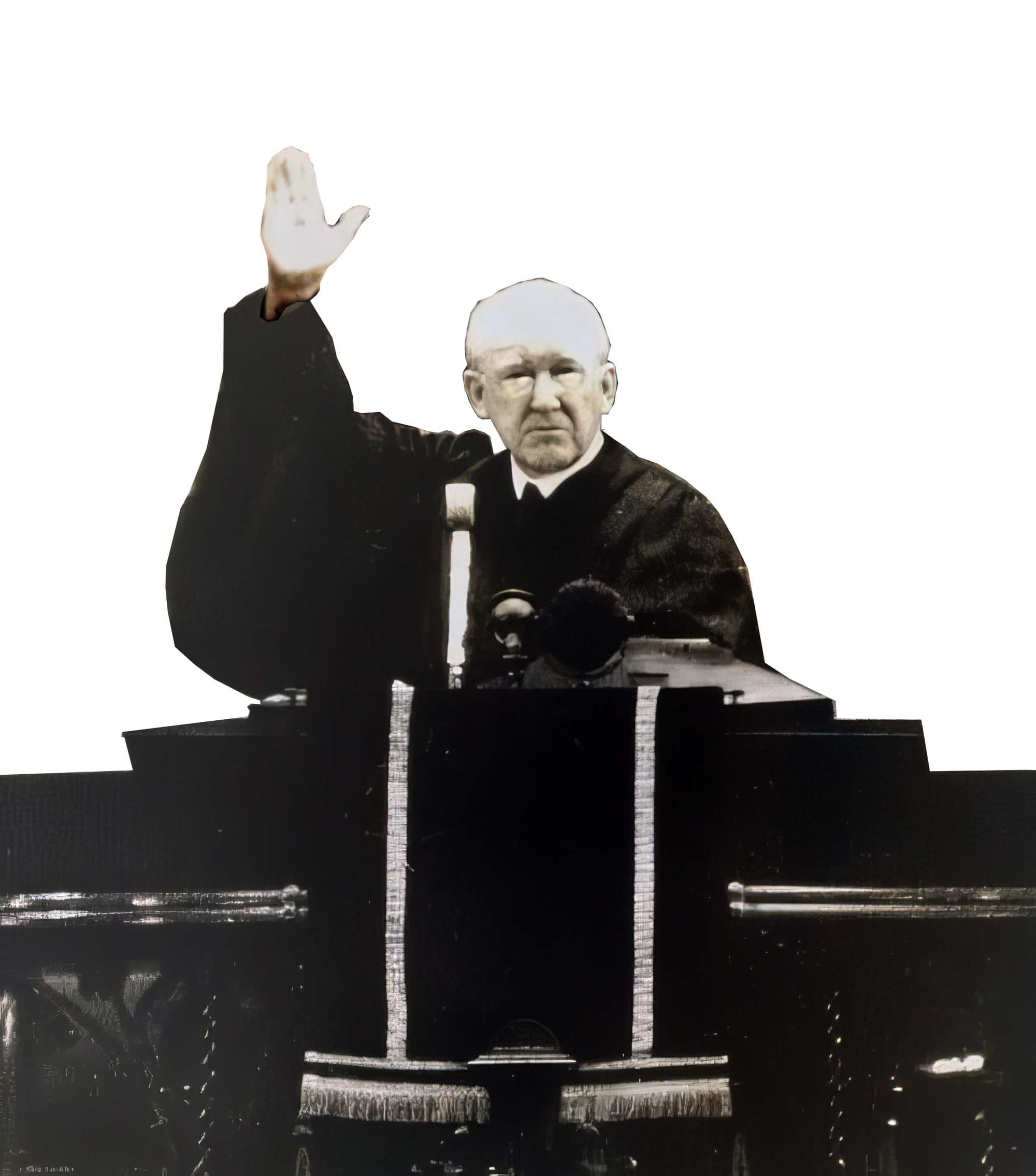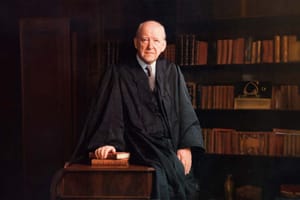Content sponsored by MLJ Trust
He’s been described as a ‘titanic figure’ of the 20th century – Dr Martyn Lloyd Jones’s powerful preaching and passion for the gospel made him one of the most influential preachers in the world. A champion of expository preaching, Lloyd-Jones often took months or even years to expound a chapter of the Bible.
His dedication to the Word of God inspired Christians from around the world to flock to Westminster Chapel, with several thousands listening to each of his sermons. His commitment to exposition continues to inspire many of the greater preachers today, and his sermon recordings have been listened to over 20 million times online.
Finest biblical expositor of the 20th century
‘Lloyd-Jones was without question the finest biblical expositor of the 20th century,’ said Dr John F. MacArthur, Jr, Pastor-Teacher of Grace Community Church, California. ‘When the final chapter of church history is written, I believe he will stand as one of the greatest preachers of all time. His style of biblical exposition was meticulously thorough and yet full of energy.’
Born in Cardiff at the end of the 19th century, five years before the start of the Welsh revival, Lloyd-Jones went on to become a medical student at St Bartholomew’s Hospital, London, after attending a grammar school in the city throughout World War I. In 1921, he started work as the assistant to the Royal Physician, Sir Thomas Horder, and after obtaining his medical degree from the University of London, the young graduate was held in such high esteem that he was touted to be the next Royal Physician.
However, it was at this time that Lloyd-Jones began to sense a call from the Lord to preach, and he spent the next two years struggling to decide whether to sacrifice his medical position to become a ‘physician of the soul’ instead. In 1927, after marrying Bethan Phillips, he accepted an invitation to minister at a struggling church in Aberavon, Port Talbot.
After a decade ministering in Wales, he was appointed as the Associate Pastor of London’s Westminster Chapel, alongside G. Campbell Morgan. But the day before he was due to be officially accepted into the position, World War II started in Europe.
Though he continued to minister at Westminster Chapel, Lloyd-Jones moved with his wife and two children to Haslemere, Surrey, for safety as the Blitz devastated the capital. G. Campbell Morgan then retired in 1943, leaving Lloyd-Jones as the only remaining pastor at Westminster Chapel, where he stayed until his retirement in 1968.
Gospel focus brought listeners to Jesus
It was while ministering at Westminster Chapel that Lloyd-Jones first became famous for his expository preaching style. Chris Larson, President and CEO of Ligonier Ministries said, ‘Lloyd-Jones had a depth and thoroughness to his preaching that offered a gospel focus that always brought the listener to Jesus. There was a timelessness in the way he communicated the Word, and his commitment to steady, deliberate exposition was amazing. To honour God’s Word by never leaving a single verse behind was inspiring.’
Such was the impact of Lloyd-Jones’s sermons that members began to record them on tapes, and they were also printed in the weekly Westminster Record. Throughout his life, Lloyd-Jones was strongly opposed to the liberalisation of Christianity, which he had seen become a growing force in a number of UK denominations. He encouraged Christians in these denominations, particularly Anglicans, to leave and believed that the church could only be united if Christians held common convictions regarding the nature of the faith.
This approach led to a major dispute in 1966 at the National Assembly of Evangelicals when prominent Anglican evangelical John Stott publicly criticised Lloyd-Jones, arguing that his opinion was against the example of the Bible. The clash generated a lot of attention in the Christian press and brought widespread controversy.
Though Stott subsequently apologised to Lloyd-Jones, the following year saw the inaugural National Evangelical Anglican Congress, which rejected the separationist approach proposed by Lloyd-Jones. The existence of the two conferences had a far-reaching impact, helping to cement the direction of a significant portion of the British evangelical community to this day.

He knew his purpose in the pulpit
While he was obviously very clever, Lloyd-Jones’s intellect never intruded on his preaching. ‘He was very humble, which was key to his sense of authority,’ said Alistair Begg, Senior Pastor of Parkside Church, Cleveland. ‘The significance of Dr Martyn Lloyd-Jones’s life will never be realised in time but only in eternity. His reward is far greater than any of these fleeting words of commendation. Why? Not because of the words he spoke but because of the Word – Jesus Christ – whom he knows as Saviour and seemingly could not help but faithfully proclaim.’
Lloyd-Jones retired from his ministry at Westminster Chapel in 1968 following a major operation. For the rest of his life he counselled other ministers, attended conferences, and helped to edit his sermons so that they could be published.
Lloyd-Jones’s final sermon took place on 8 June 1980 at Barcombe Baptist Chapel. He died peacefully in his sleep less than a year later and was buried at Newcastle Emlyn in west Wales. However, his preaching style and theology has lived on through new generations of Christians and Christian leaders.
Lloyd-Jones’s sermons can still be listened to today for free on the MLJ Trust’s website, app, and YouTube channel. To listen to his sermons, visit MLJTrust.org.
by MLJ Trust







